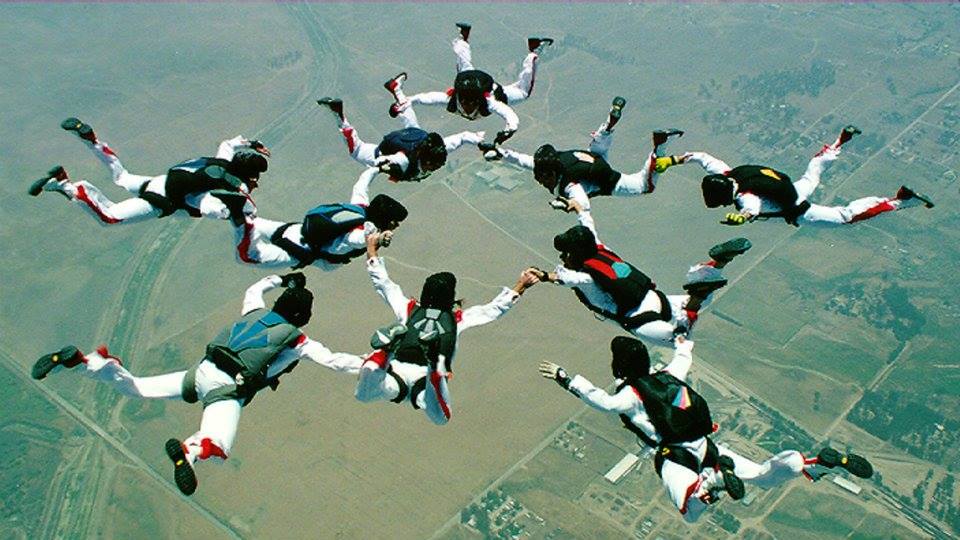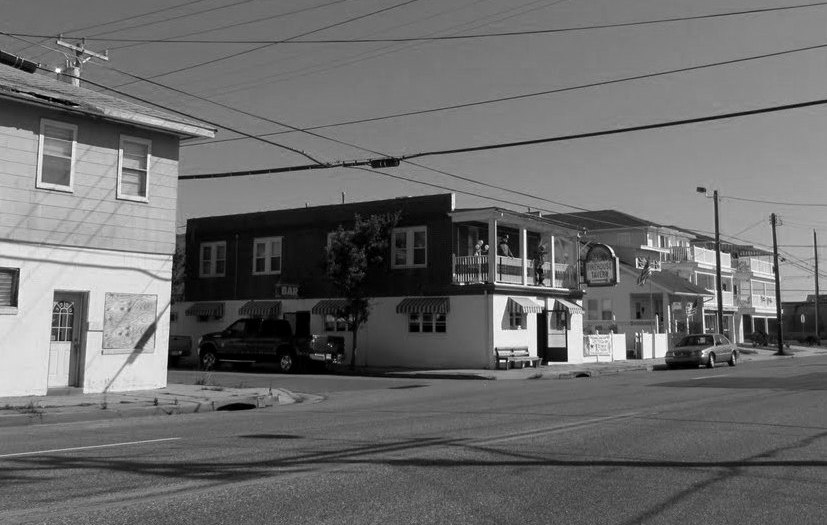 It began as a series of dots, each of them free-falling toward earth, a static shroud of gray behind. There was music, rounds of clapping, clasping hands despite no sun. There was the buzz, and then the cut, of engines; a chartered plane, a stretch of sand. There came the first of 30 parachutes, ballooning forth like blobs of dye. There came white bell-bottoms, whistling creases; trails of smoke from every thigh. There came fake rhinestones, gold sunglasses; a tower of speakers, “Suspicious Minds”.
It began as a series of dots, each of them free-falling toward earth, a static shroud of gray behind. There was music, rounds of clapping, clasping hands despite no sun. There was the buzz, and then the cut, of engines; a chartered plane, a stretch of sand. There came the first of 30 parachutes, ballooning forth like blobs of dye. There came white bell-bottoms, whistling creases; trails of smoke from every thigh. There came fake rhinestones, gold sunglasses; a tower of speakers, “Suspicious Minds”.
There came the first of 30 Elvi, all sideburns and bouffant, maintaining pace as he detached himself in stride. There came a retinue in tandem, thumbs up, heads down, trailing off into a tent along the sand. The action shifted, west toward a stage, where the Flying Elvi took their marks. There was a rush and then a whistle, an off-key round of “Burnin’ Love”. It was an atrocity, and it was perfect – part of a burgeoning campaign to bolster Wildwood’s future by paying homage to its past. Cape May had made good bank on this for years. Wildwood, by comparison, remained uncharacteristically apart. Continue reading

